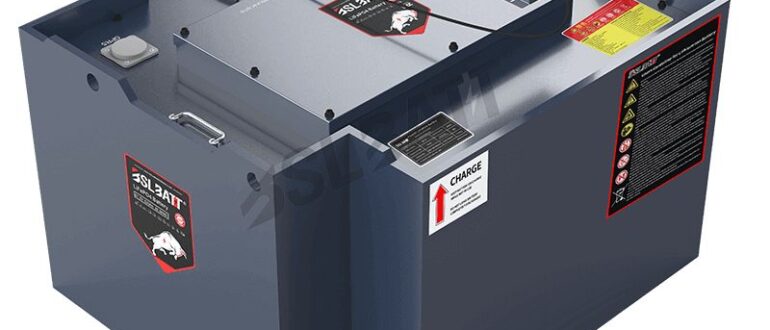When it comes to powering forklifts, the debate between lithium and lead-acid batteries has been heating up in warehouses and distribution centers worldwide. While lead-acid batteries have long been the standard, lithium technology is rapidly proving to be a superior alternative. Let’s break down the advantages of lithium batteries and see why they outperform lead-acid in almost every category.
Efficiency and Productivity
Lithium batteries are champions of efficiency, offering faster charging times and no need for cool-down periods. A lead-acid battery requires hours to charge and an additional 8 hours to cool down before it’s ready for use. In contrast, lithium batteries can be fully charged in just 1-2 hours, and they’re designed for opportunity charging. This means forklift operators can top off the battery during short breaks and remains operational throughout the day without the need for swapping batteries.
This boost in productivity is a game-changer for warehouses that run 24/7 operations. With no downtime waiting for batteries to charge or cool, these machines will stay running increasing your efficiency.
Maintenance-Free Operation
One of the most significant disadvantages of lead-acid batteries is their high maintenance requirements. These batteries need regular watering, equalization charges, and manual cleaning to prevent corrosion. Failing to maintain them properly can lead to reduced performance and a shorter lifespan.
Lithium batteries, on the other hand, are virtually maintenance-free. They don’t require watering, and their sealed design eliminates the risk of acid leaks and corrosion. This not only saves labor and maintenance costs but also ensures a cleaner and safer workplace.
Lifespan and Total Cost of Ownership
Lead-acid batteries typically range from $4,000 to $10,000+ depending on the size and generally carry a 5-year warranty. Lead-acid batteries can deliver 1,000 to 1,500 charge cycles and cell degradation often begins within this timeframe. This leads to a decline in performance and the potential for costly repairs after five years. Maintenance including watering, cleaning, and equalization, can add another $1,000 per battery annually. For a fleet of 10 forklifts, these maintenance expenses can quickly total $50,000 over five years. A manufacturer warranty does not cover ongoing maintenance costs.
In contrast, lithium batteries offer a significantly longer lifespan, often providing 2,000 to 3,000 charge cycles with minimal degradation. Additionally, many lithium batteries come with warranties of up to 10 years, providing peace of mind and eliminating the need for costly mid-cycle repairs. The reduced maintenance, combined with a longer functional lifespan, results in substantial savings for forklift operators over time.
Environmental and Safety Advantages
Lithium batteries are also a greener choice for warehouses aiming to reduce their environmental footprint. Unlike lead-acid batteries, they don’t contain hazardous materials like lead or sulfuric acid. Their longer lifespan ensures less waste in landfills too. Additionally, many lithium batteries are recyclable, further reducing their environmental impact.
Safety is another area where lithium batteries shine. With no risk of acid spills or hydrogen gas emissions during charging, these batteries eliminate common safety hazards associated with lead-acid batteries. Their built-in Battery Management Systems (BMS) monitor the battery’s performance and prevent issues like overheating or overcharging, ensuring reliable and safe operation.
Conclusion
When comparing lithium and lead-acid batteries, the advantages of lithium technology are clear. From faster charging and maintenance-free operation to a longer lifespan and superior safety features, lithium batteries offer a significant upgrade for forklift operations. While the initial investment may be higher, the long-term benefits in productivity, cost savings, and environmental sustainability make lithium the undisputed winner in this battery showdown.
Call Adept Equipment to learn more, or view our factory partners commitment to lithium technology.




